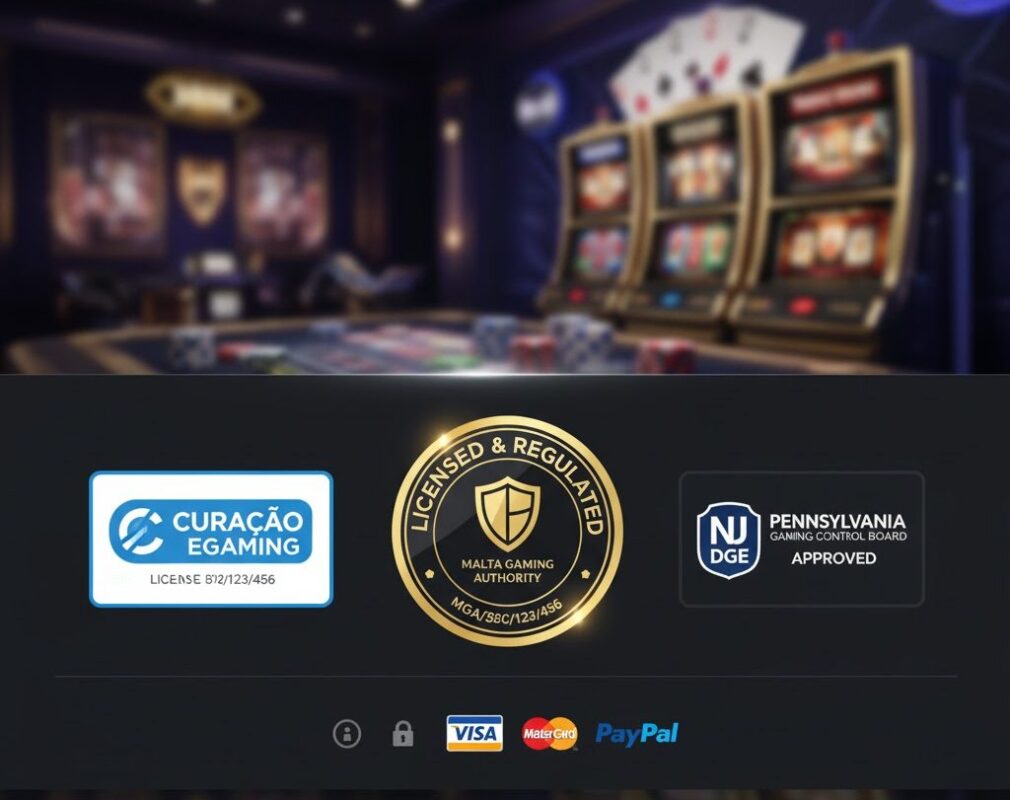Let’s Answer the Burning Question! What Makes an Online Platform ‘Trusted’?

Nearly three out of four adults in the U.S. have faced an online scam, according to Pew Research. That’s a huge number, and it keeps growing. Across the world, people lost more than a trillion dollars to scams last year alone. (Source: Global Anti-Scam Alliance)
It’s a solid reminder of how dangerous the internet can be, even for people who think they know what they’re doing. Because of that, it’s more important than ever to know which platforms can be trusted. A trusted site doesn’t mean fancy design and loud promises, but safety, honesty, and consistency. When individuals feel their money and data are secure, they stay. When they don’t, they leave and don’t look back.
Licenses Come First, Always
If a business wants to be taken seriously, then it needs a license. That’s the proof that somebody’s checking on their work and that they are up to the standards expected in their field. Without it, customers are left to rely on words rather than facts, which never ends well.
This is particularly important in the online entertainment industry, where regulation defines who’s trustworthy. Licensing isn’t paperwork, it’s proof that a casino operates within real, enforceable boundaries. In states like New Jersey and Pennsylvania, regulators oversee payout systems, player funds, and software integrity. Every slot spin and poker hand runs under watchful, transparent control.
Texas sits at the other end of that spectrum. With no state-backed online gambling framework, Texans rely on internationally licensed platforms that meet the same operational standards abroad. These reliable online casino sites for Texans hold credentials from bodies like Curaçao eGaming and the Malta Gaming Authority, ensuring player protection, fair odds, and data security even without a local regulator.
Real Protection Starts With Real Security

If a site’s going to ask for your data, it better know how to protect it. One of the easiest ways to check this is by seeing if the padlock icon next to the web address is present.
Updates matter too. Outdated platforms are easier to hack into. If a site hasn’t been updated in ages or still looks like it’s running on 2012 code, then move on. The best platforms keep things tight behind the scenes: new patches, mobile support, better security checks. That’s what you want.
Extra login steps, such as two-factor verification, are also a good sign. If you get a text or app prompt when you are logging in, it means that the platform is thinking about safety, not just for their sake, but yours.
A Good Site Has Nothing to Hide
The more open a platform is about who they are and what they do, the better. And if they’re making it hard for people to find contact information, burying their policies behind several layers of menus, that’s already a red flag.
The terms and privacy pages should actually say something useful. You’re looking for clear language, not a maze of legal noise.
What Other People Say Also Matters
No one sees everything, but users see the things that are important. If a site is good and reliable, you’ll find out through the feedback. Reviews that are honest (some praise, some critique, but all specific) are to be taken as a good sign.
Check their social channels, as well. If they’re active, and you are actually seeing them respond to questions or complaints, that’s better than any ad. Look for patterns: do they help quickly or ignore people until things blow up? That tells you a lot.
Money Handling That Feels Safe
If a platform isn’t able to handle payments effectively, nothing else even matters. How it handles money says all you really need to know about the way it runs the rest of its business. You want to see safe systems, payment options that aren’t too difficult to understand, and processes that don’t leave you wondering about what’s going on.
Fees must never be a surprise. If the numbers don’t add up, trust is lost quickly. Transparent sites leave no question as to what you need to pay prior to confirmation.
Final Insights
Trust in an online platform isn’t built overnight—it’s earned through transparency, accountability, and continuous protection of users. Whether it’s a casino, a shopping site, or a social network, the core principles stay the same:
- Proper licensing and regulation prove legitimacy.
- Robust data security protects both information and identity.
- Open communication and visible support build user confidence.
- Fair and transparent money handling seals long-term loyalty.
In the digital age, “trusted” means more than just a recognizable name—it means a platform that consistently puts user safety, honesty, and control at the center of its operations.
Disclaimer
This article is for informational purposes only and does not constitute legal, financial, or professional advice. Readers should verify the licensing status and reputation of any online platform before engaging in transactions or sharing personal information. Online gambling, where applicable, should only be done on licensed and regulated platforms, and users should ensure compliance with their local laws.
Authoritative References
- Pew Research Center – “Americans’ Experiences with Online Scams” (2024)
- Global Anti-Scam Alliance – “Annual Global State of Scams Report” (2024)
- Malta Gaming Authority (MGA) – “Licensing and Compliance Guidelines”
- Federal Trade Commission (FTC) – “How to Recognize and Avoid Online Scams”
